
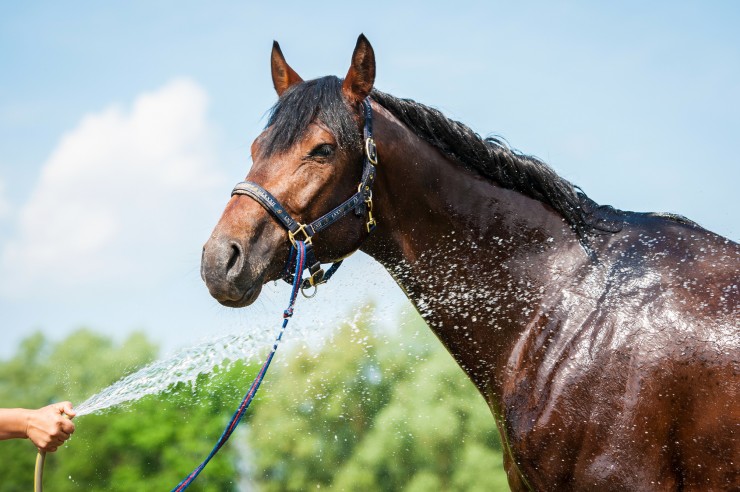
Everyone loves it when the weather warms up and the days grow longer. For horse owners it's a time of year when more gets done. However, people may love it when the temperatures soar, but for horses it can be a different story altogether. If the temperatures really soar, it can make their lives very uncomfortable and even prove quite dangerous for them. Horses quickly dehydrate in hot weather, they tend to be lethargic and some may suffer from heatstroke, it can upset their delicate digestive systems resulting in them scouring or developing colic which is why it's so important to keep an eye on horses during the summer and setting things up so they stay safe.
Below is a list of tips that will help keep your horse cooler and safer over the summer months which will make their lives a lot more comfortable when and if the temperatures soar.
It's better for horses to stand in when the weather is extremely hot and to turn them out at cooler times of the day which is typically earlier in the morning and then again in the evening when the sun is low in the sky. This is particularly true if a turnout paddock does not provide any shade and there's no field shelter in it either. Grey horses and those with lots of white or pink on their faces are at risk of getting quite badly sunburnt which is another reason for not leaving them out when the weather is really hot.
If your horse lives out, it's really important to provide enough shade for them so they can get out of the sun when they want to. Good tree cover can provide much needed relief from the sun, but it may not provide shade as the sun moves in the sky. Field shelters on the other hand provide shade all through the day so if you can erect one in your paddock, the better it would be for your horse. The other advantage being that you can rope off the entrance to keep them in when needed.
Well ventilated barns should have enough air circulating around them to ensure that horses are cool when they have to stand in. However, if the air doesn't circulate that well, consider installing ceiling fans remembering they have to out of the reach of any horses.
Most horses appreciate being hosed down when the weather is really hot whether they are standing in or out in a paddock. The thing to avoid is hosing them down in gateways because this just creates a muddy area that everyone has to walk through when horses are turned out or being brought in.
It's really important that horses have access to fresh, clean water whether it's in a bucket or a drinker in their stable, but it's also essential that water troughs are regularly cleaned out during the hotter summer months when algae tends to take over. It can be a chore to clean them out, but it's something that needs doing so the water is clean and bug-free which means it’s more appetising and safer for horses to drink.
If your horse is in heavy work and they regularly sweat up, you need to make sure they are given electrolytes to replenish any losses. You can either add them to their water or you could place a salt block in their stable or field for them to lick when they want to. Licking on a salt block will encourage your horse to drink more water which is always a very good thing when the weather is hot.
If you add electrolytes to their water bucket, make sure you provide them with another bucket of fresh clean water free of any electrolytes because not all horses will drink water when they've been added to it. You also need to bear in mind that giving too many electrolytes can be quite damaging to horses so if you are in doubt about how much to give, discuss things with the vet first.
If you have to ride when it's very hot, think about reducing the workload and shortening your ride so that it does not put too much pressure on your horse. If you have an exercise schedule you need to stick to, think about breaking one session into two shorter ones. As soon as you have finished exercising, remove the saddle straight away before sponging your horse off. However, you have to bear in mind that horses need to be cooled off slowly and they should only be allowed to take a few sips of water until they are cool again.
Set up a routine that ensures your horse is kept as cool as possible and then stick to it because any sudden changes could well result in colic. Horses are creatures of habit and when anything changes in their schedule, it can play havoc with their digestive systems and internal clocks.
Horses carrying too much coat will sweat a lot more than a horse that's been clipped out. Horses that suffer from conditions like Cushing's disease or PPID benefit from being clipped during the hotter months because they tend to have thicker and longer coats even in the summer. A dense coat may provide insulation, but it also holds the heat in which makes it that much harder for horses to cool down.
It's important that you recognise the first signs of heatstroke remembering that it can happen at any time which includes when you are exercising your horse especially when the weather is hot and humid. However, horses can suffer from heatstroke when standing in their stable or in a trailer. The signs to watch out for include the following:
If you suspect your horse may be suffering from heatstroke, you need to call out a vet immediately and get your horse to a cooler place until they arrive.
Summer is a wonderful time of the year for horse owners because more gets done when the days are longer which includes lots of time for riding. However, although most people love the hot weather, horses can sometimes find it problematic. You have to keep a close eye on things to make sure a horse is not too hot and if they are to put things in place so they're kept cooler. Making sure they are well hydrated is essential and if they sweat up a lot to offer them electrolytes which will help replenish any losses.
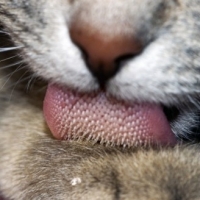 Get Rid Cat Hairballs
If you have ever owned a cat, you have noticed on occasi
Get Rid Cat Hairballs
If you have ever owned a cat, you have noticed on occasi
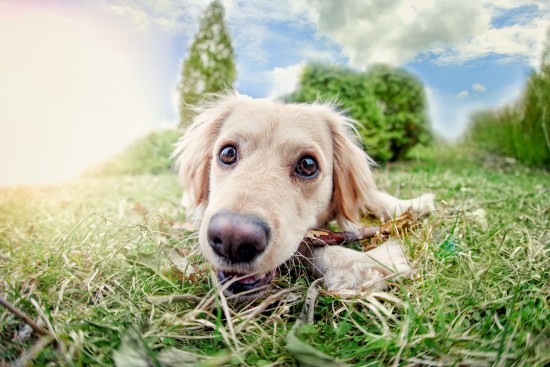 Eight Top Safety Tips For Dog Owners
Eight Top Safety
Eight Top Safety Tips For Dog Owners
Eight Top Safety
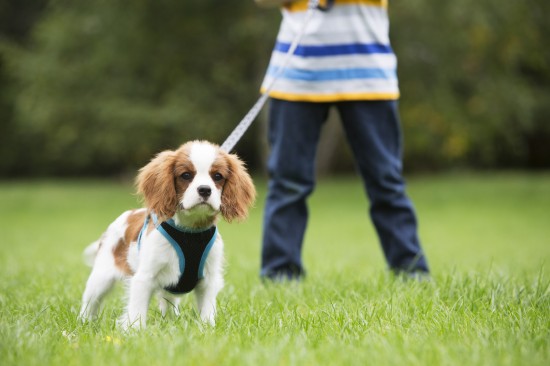 Walking A Reactive Dog On The Lead
Walking A Reactiv
Walking A Reactive Dog On The Lead
Walking A Reactiv
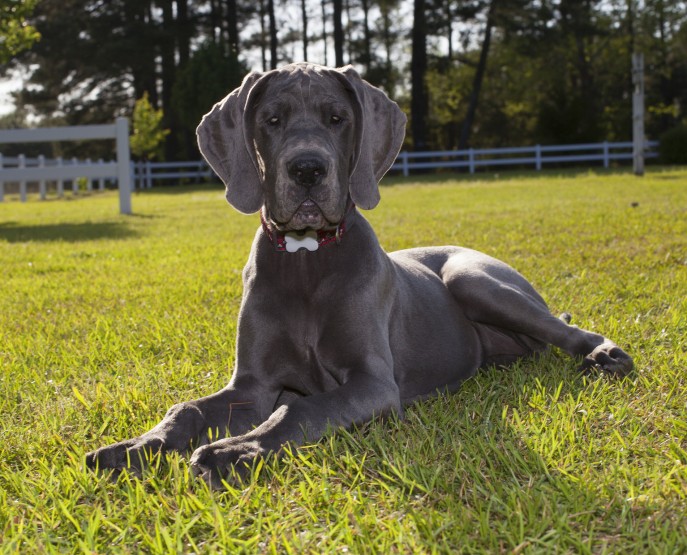 How To Decide Upon A Puppy Food For Large And Giant Breeds Of Dog
How To Decide Upo
How To Decide Upon A Puppy Food For Large And Giant Breeds Of Dog
How To Decide Upo
 If you are a woman and are looking to buy a jersey
If you are a woman and are looking to buy a jersey
Copyright © 2005-2016 Pet Information All Rights Reserved
Contact us: www162date@outlook.com